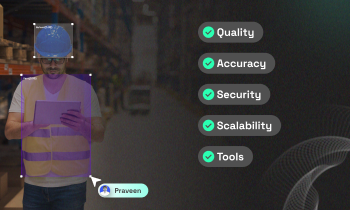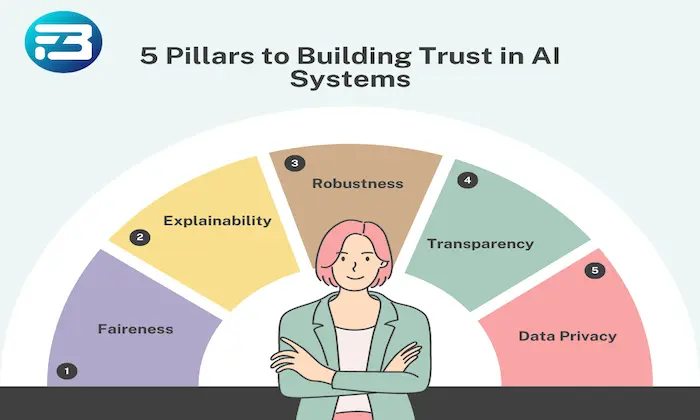What is Offline Speech Recognition?
Speech Recognition
Mobile Devices
Speech AI
Offline speech recognition is a technology that enables voice-to-text conversion without needing an internet connection. This capability allows users to interact with devices and applications using voice commands even in places where network connectivity is unavailable. Its significance spans across various sectors, offering benefits in privacy, speed, and accessibility.
How Offline Speech Recognition Works
Offline speech recognition systems function through several critical steps, allowing them to convert spoken words into text seamlessly:
1. Audio Input Capture: A microphone captures the spoken words.
2. Audio Processing: The captured audio is converted into a digital format, incorporating noise reduction and amplification.
3. Feature Extraction: Key characteristics of the audio are identified to differentiate phonemes and words.
4. Model Processing: These extracted features are processed by a locally stored machine learning model, trained on extensive datasets to interpret the audio and produce text.
5. Output Generation: Finally, the recognized text is generated, which can be displayed on a screen or used for further commands.
Key Benefits of Offline Speech Recognition Technology
Offline speech recognition offers several advantages that make it a compelling choice for many applications:
- Privacy and Security: By processing data locally, users maintain control over their voice data, reducing the risk of breaches or unauthorized access.
- Performance and Reliability: These systems offer faster processing since they don't rely on external server response times, which is crucial in areas with poor connectivity.
- Broader Accessibility: This technology empowers users in regions with limited internet infrastructure, enhancing accessibility to voice-recognition capabilities.
Applications and Real-World Examples
Offline speech recognition is used in various applications, including:
- Voice Assistants: Devices like smart speakers and personal assistants that process commands without internet dependency.
- Transcription Services: Applications for taking meeting notes or converting spoken content to text in real-time.
- In-Car Systems: Voice commands in navigation and entertainment systems that don't rely on cellular networks, essential for remote areas.
Critical Considerations in Developing Offline Speech Recognition
When developing offline speech recognition systems, several factors and trade-offs need consideration:
- Model Size vs. Performance: Balancing model complexity with device capabilities is necessary. Larger models may offer better accuracy but demand more storage and processing power.
- Data Diversity: Models need training on diverse speech datasets to perform well across various accents and dialects. A lack of diversity could hinder real-world performance.
- Continuous Learning: Offline systems must incorporate mechanisms for periodic updates to maintain accuracy, requiring occasional internet connectivity.
Challenges in Offline Speech Recognition
Despite its advantages, offline speech recognition faces certain challenges:
- Handling Noise: While designed to work in noisy environments, the effectiveness largely depends on the microphone quality and noise reduction algorithms.
- Complex Language Models: Offline systems may struggle with languages or dialects not included in the training data.
FutureBeeAI's Contribution to Offline Speech Recognition
At FutureBeeAI, we specialize in providing high-quality, diverse datasets essential for training robust offline speech recognition models. Our offerings include:
- Multilingual and Accent-Rich Datasets: Ensuring models are trained on a variety of languages and accents to improve recognition accuracy.
- Custom Data Collection: Tailored datasets that reflect diverse real-world scenarios, enhancing model performance in practical applications.
By partnering with FutureBeeAI, companies can access these valuable resources to develop and refine their offline speech recognition systems, ensuring they meet the highest standards of accuracy and reliability.
FAQs
What are the limitations of offline speech recognition?
Offline systems may lack the ability to handle complex language models and cannot instantly access updates or improvements available to online systems.
Can offline speech recognition be used in noisy environments?
Yes, though their effectiveness depends on the quality of microphones and noise reduction algorithms. While advanced models can perform better, they still face limitations compared to cloud-based systems.
Offline speech recognition is a powerful tool that enhances user interaction with technology across various environments. By understanding its mechanisms and leveraging quality data, such as what FutureBeeAI provides, organizations can create effective voice-driven solutions that prioritize privacy, speed, and accessibility.
What Else Do People Ask?
Related AI Articles
Browse Matching Datasets
Acquiring high-quality AI datasets has never been easier!!!
Get in touch with our AI data expert now!








